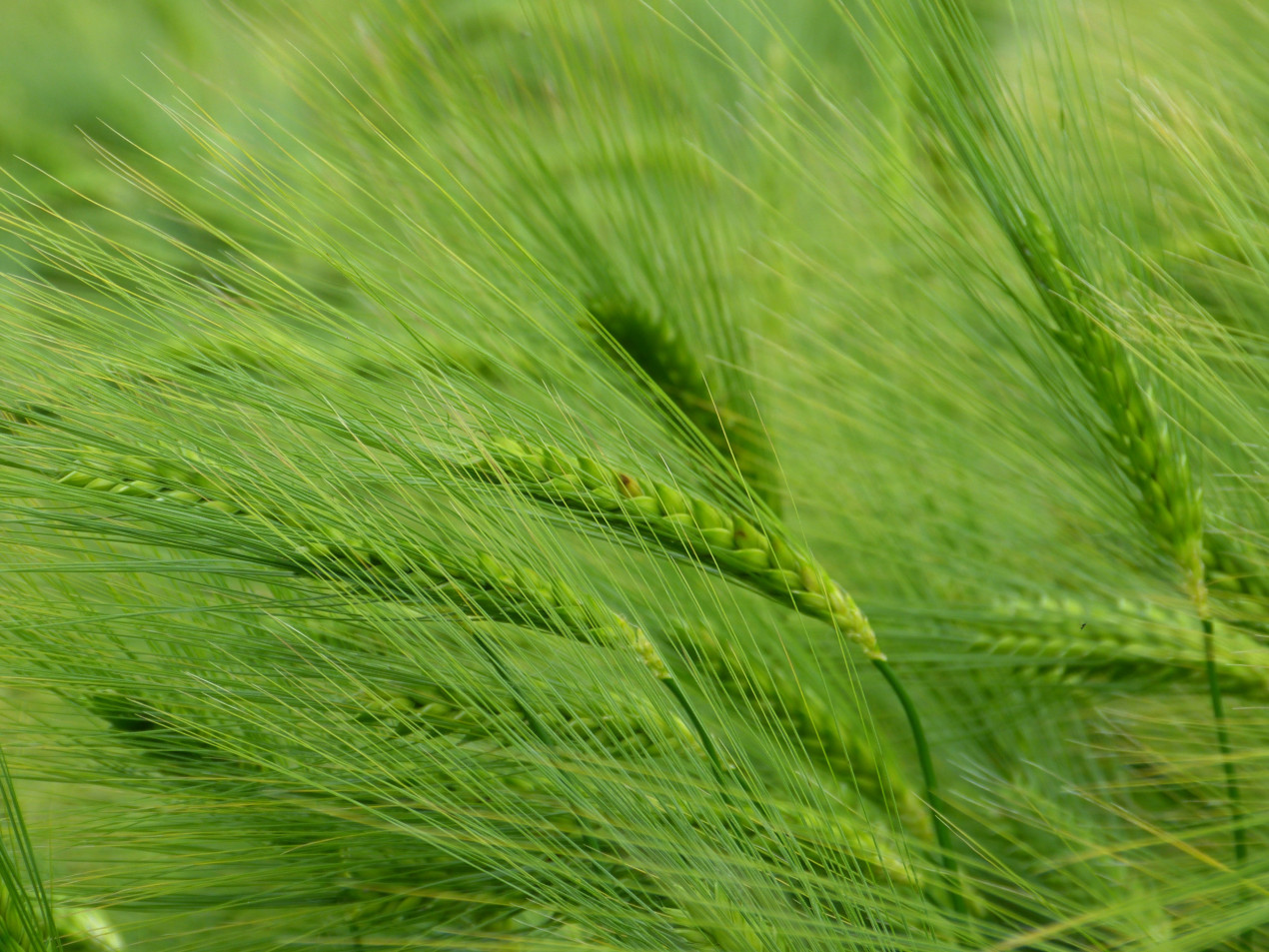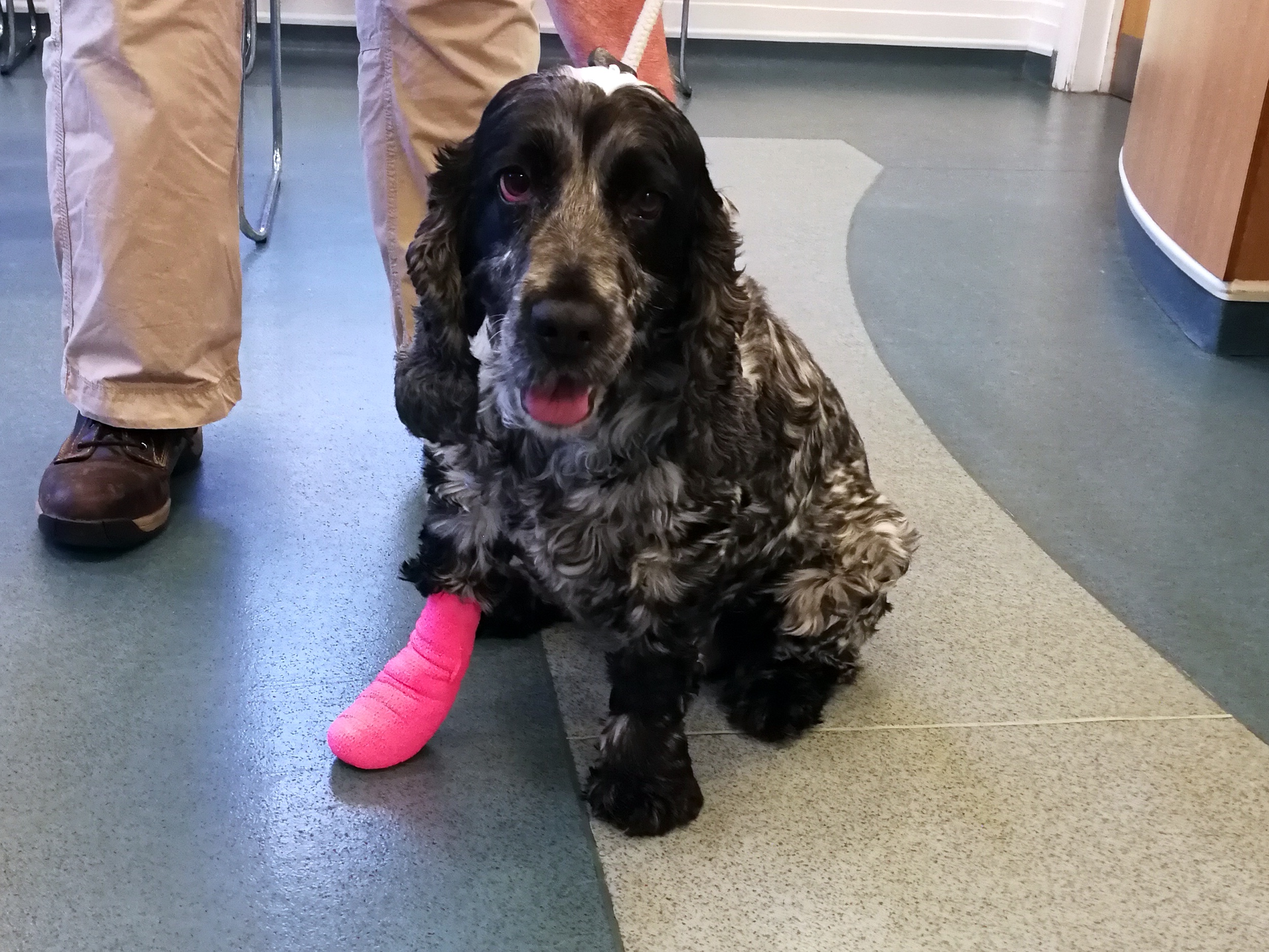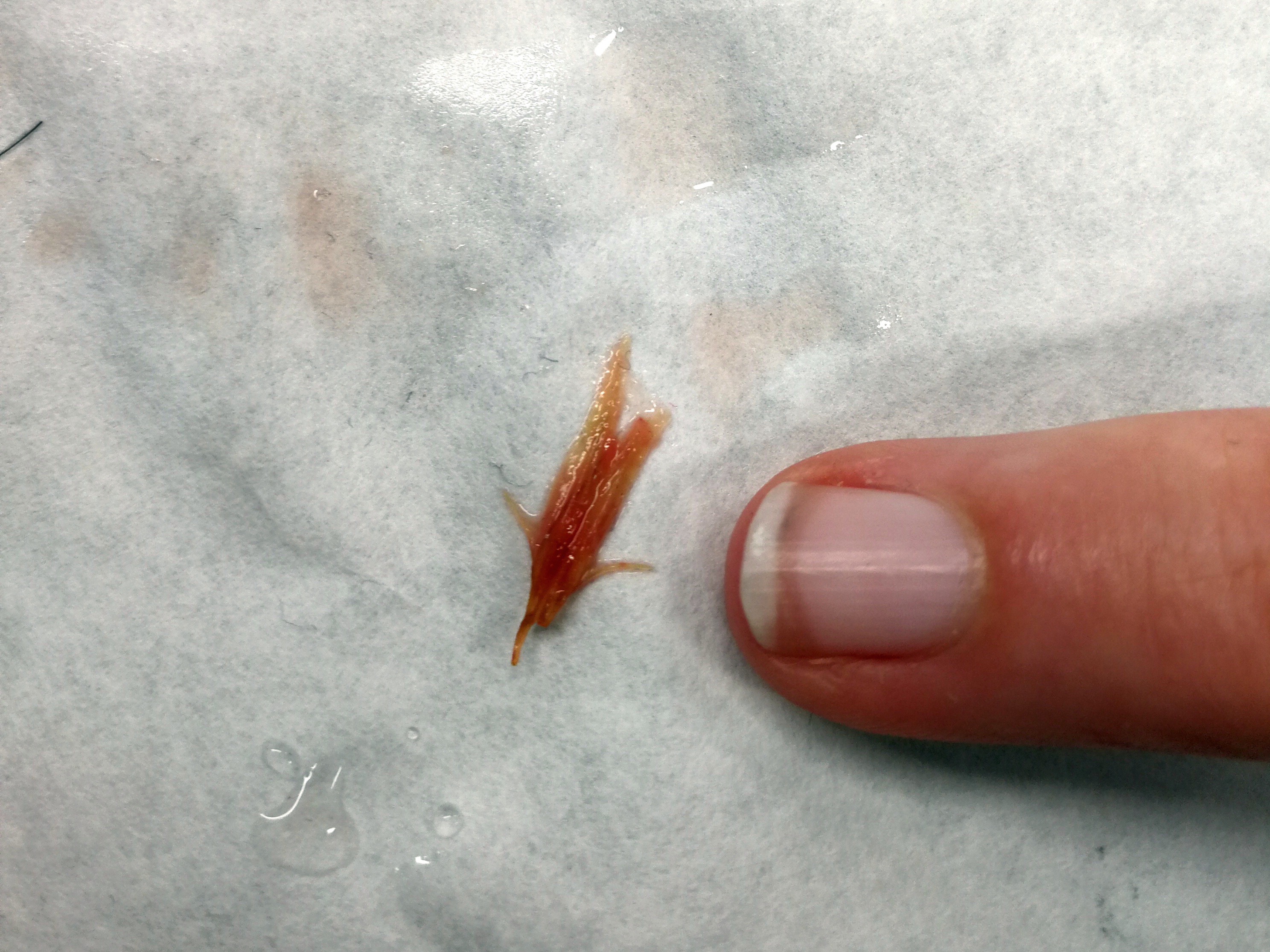Grass awn gets lodged in dog’s paw causing painful wounds
Humble grass seeds may sound like an unlikely source of trouble for dogs – but owners are being warned about their dangers.
Ian Smith is urging fellow dog owners to be alert to the risks of certain types of grass seeds, or grass awns, after seeing his cocker spaniel suffer as a result of them.
Mable developed a severe limp and painful injuries which were eventually found to be caused by a tiny grain embedded in the top of her paw.
Ian, 75, took Mable to our clinic in Hemel Hempstead where they were able to remove the offending seed quickly.
Retired college lecturer Ian said: “She was limping really badly and then it got worse and more painful and the fur started coming out.
“The seed had obviously been in there a little while and I could see it was quite sore. When Mable couldn’t put her foot down I knew I had to get it looked at even though it was out of hours.”
Grass awns have backward-pointing barbs that can get lodged in pet ears, between toes, and under the skin. While they are only prevalent in certain areas, such as the south of England, they are a common source of minor emergencies at Vets Now clinics in the summer.
Since Mable’s difficulties, Ian, who lives in Hemel Hempstead, has been alerted to what a common problem they can be for dogs.
“I spoke to someone who told me his spaniel had the same problem,” he explained. “They can get lodged in the paw and they’re even worse in the ears as it drives them mad. The seeds are so sharp they can work their way into the skin – they’re a horrible thing for dogs.”
Michelle Dawson, who is the senior vet in Vets Now Hemel Hempstead, echoed Ian’s views.
She explained that she had treated four dogs who had suffered injuries caused by grass seeds in just one weekend during the summer. Thankfully, in Mable’s case, Michelle was able to locate and remove the offending grass seed quickly.
The cocker spaniel was back to her lively self after a few days following a course of antibiotics.
Michelle said: “Mable is a gorgeous looking dog and it was sad to see her in so much pain from a little grass seed, but grass seeds can be a fairly common problem in the summer months. I had to deal with four dogs with similar injuries caused by grass seeds in the same weekend,” she said.
“The seeds typically fall off long grass and embed themselves in a dog’s paws, ears, armpits, tail, eyes, groin or other areas of skin, sometimes causing painful wounds and infections.
“In rare cases, grass seeds have also been known to burrow under the skin and travel to other parts of the body. All dogs can be affected but the most susceptible are those with feathery toes who enjoy running through long grass, such as spaniels.”
Michelle said owners should check and groom their dogs if they’ve been walked in areas with long grass.
The Vets Now clinic in Hemel Hempstead, where Mable received treatment, was recently rated as “outstanding” by the Royal College of Veterinary Surgeons.
It’s one of 60 Vets Now clinics and pet emergency hospitals across the UK that are open through the night, seven-days-a-week, and day and night on weekends and bank holidays, to treat any pet emergencies that may occur.
All of Vets Now’s premises have a vet and vet nurse on site at all times.



